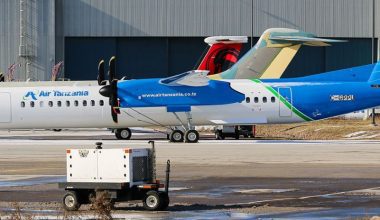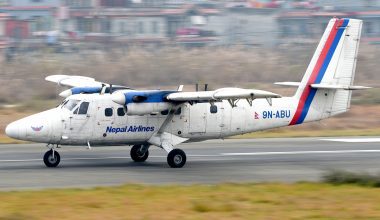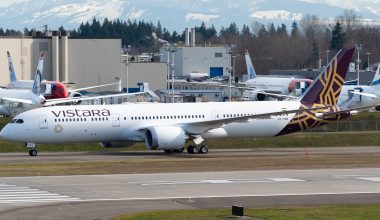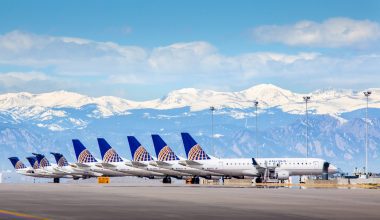An airport is not just the air facility for airplanes to take off and land; it is the second home for travelers. Furthermore, airports are characterized as commercial enterprises and the aerial gateway to important destinations. There are over 40,000 airports worldwide and the United States boasts the highest number and some of the largest airports in the world. Airports come into the limelight for various reasons: sheer size, passenger numbers, state-of-the-art facilities, etc. Today, let’s have an insight into the world’s busiest airport: Hartsfield-Jackson Atlanta Airport.
Brief background of Atlanta Airport
Hartsfield-Jackson Atlanta Airport or simply Atlanta Airport is the primary airport situated 7 miles south of the Downtown Atlanta serving the Atlanta metropolitan area. In addition to hosting major corporate operations for Delta Air Lines, it also serves as a focus city for low-cost Frontier Airlines, Southwest Airlines, and Spirit Airlines.

Atlanta Airport is spread over the land of 4,700 acres and hosts two international terminals and five parallel runways. This airport holds the title of the busiest airport not only in the US but around the globe. From 1998 till now (with the exception of 2020) Atlanta airport has handled the highest number of passenger traffic in the world. This US-based airport saw 75,537,213 passengers in 2021, surpassing the passenger traffic of Dallas Fort International Airport by over 13 million. How is it possible for Hartsfield-Jackson Atlanta Airport to hold the top spot as the world’s busiest airport every year?
Why does Atlanta Airport have the highest passenger volume?
Hartsfield-Jackson Atlanta Airport is the busiest airport mainly for these reasons: its strategic geographical location, lack of local competition, and its role as a home to one of the largest carriers, Delta Air Lines.
- Strategic geo-location
Atlanta Airport has a favorable geographical position that makes it ideal as a connection hub for the larger United States. The geographical good fortune of Atlanta Airport attracts a lot of pass-through hub traffic and keeps it within a two-hour flight for 80% of the US population. The airport offers seamless connection to over 150 destinations in the country and brings passengers into Atlanta as an entry point for other travel into multiple locations in the US. The strategic eastern position of the airport in the country contributes to the high international traffic.
- Lack of local competition
Atlanta, the 38th largest US city, just has one major airport to serve the area, and surprisingly, it is enough. Unlike other important metropolitans such as New York, Texas, Chicago, etc. which host multiple airports, Atlanta presents no local competition to Hartsfield-Jackson Atlanta Airport which means the whole city residents use Atlanta Airport due to the absence of other viable air facilities in the area.
The two international terminals of Atlanta Airport have altogether 195 boarding gates, the world’s largest number of gates for an airport. There are 7 concourses: T, A, B, C, D, E, and F containing 17, 29, 32, 4, 40, 28, and 12 gates respectively.
- Hosting Delta hub
The US aviation market is largely dominated by Delta Air Lines, a legacy carrier that operates over 5400 flights on a daily basis to over 325 destinations in 52 countries spanning six continents. Atlanta Airport is the home to Delta’s corporate and technical operations. It hosts Delta hub, the world’s largest airline hub, that oversees over 1,000 flights per day to an extensive network of 225 domestic and international destinations.
Atlanta is the corporate headquarter, primary hub, and primary maintenance base for Delta Airlines. Delta concentrates its traffic flow through its main hub in Atlanta Airport for the Southeastern US. Besides, Hartsfield-Jackson also acts as Delta’s main gateway to Latin America and the Caribbean.
Other reasons
Another crucial component of Atlanta’s success as the world’s busiest airport is its capacity to expand over time. With the rise in air operations, it has sufficient space to grow on the ground and in the air. Ground-wise, it is located11km south of downtown Atlanta, allowing plenty of room to grow and in terms of airspace, it has no constraints on the number of takeoffs and landings as the only major airport serving the city.
Being the busiest airport doesn’t necessarily mean the presence of chaotic and crowded conditions across the terminals. In fact, Hartsfield-Jackson Atlanta Airport is the title holder for the world’s most efficient airport for the 18th consecutive year. The airport employs more than 60000 people to get the flight schedule in time and invests heavily in passenger facilities to ensure a seamless experience.






